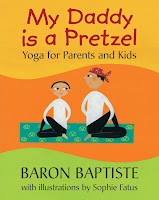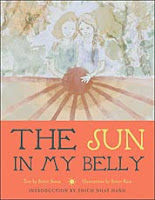Good morning, world!
Today I bring you a blog post from the other end of the day, the beginning, to suitably beckon the fortuitous morning wonders tucked inside this day's dispatch.
Following closely on the heels of Kid Week, it feels appropriate that I should share some of Jostein Gaarder's remarkable work, intertwining lessons that introduce the basics of philosophy with suspenseful mystery stories. His best novels, Sophie's World and The Solitaire Mystery, are perfect gifts for children from eight on up, sharing, in the process, love of wisdom, love of learning, reading, love of story, love of language, literature.
I read about Sophie when I was straddling the ages of fourteen and fifteen, and then I followed up by reading about Hans Thomas when I was sixteen. I have been trying to finish Maya since seventeen. Even though that story has all the right elements that make his other stories work (and also tugs at me with its scenes staged in Barcelona!), I just couldn't get past the annoying presumptive attitude of the characters in regards to human evolution and human intellectual capacities (They're quite keen on putting people on a throne for their incidental part in bringing the universe consciousness of itself), as well as the droning scenes, pitting the protagonist against a gecko or lizard, which scenes just dragged on and on and on.
In any case, I still adore his writing. Having prodded myself to reopen his books, I feel as though I've been missing something critical, depriving myself, all this time by not reading these stories over again every few months, keeping their best-kept secrets always close by, much the same way I feel about a handful of other authors (a list which now includes Susan Glaspell, Eric Hoffer, Italo Calvino, Daniel Quinn, and Derrick Jensen).
The sad, disillusioned words of the father's character in The Solitaire Mystery make me think first that this trick shouldn't be so hard, but then, with fatigue pressing its fingers over my eyes and shoulders and neck muscles, I remember how difficult it really is to get out of bed in the morning, the fretting about all I have yet to accomplish draped heavily over my body, the assumption already made that this leaden feeling is normal and routine, the initial spark that proclaims, "Look out! This is mystery! This is flammable!," all but forgotten--this spark has usually faded to cold by the time I open my eyes. But, as I mentioned when I recalled I wanted to share this passage with you, it is never too late or never too much of a shock to splash some cold water on one's face and startle oneself into an alert, fully conscious state.
I challenge myself, having re-examined these particular scenes, to live that daily adventure-mystery and to wake up with a bang. Not too forcefully, I challenge you to do the same, as well.
Sarah Jane Hails; pgs. 153-156 and 167-168):
"After the oracle had assured us we would meet Mama in Athens, we walked further up through the temple site and found an old theatre, which had room for five thousand spectators. From the top of the theatre we looked out over the temple site and right down to the bottom of the valley.
On the way down Dad said, 'There is still something I haven't told you about the Delphic Oracle, Hans Thomas. You know, this place is of great interest to philosophers like us.'
We sat down on some temple remains. It was strange to think they were a couple of thousand years old.
'Do you remember Socrates?' he began.
'Not really,' I had to admit. 'But he was a Greek philosopher.'
'That's right. And first of all I'm going to tell you what the word "philosopher" means...'
I knew this was the beginning of a mini-lecture, and honestly I thought it was a bit much, because the sweat was pouring off my face under the burning sun.
'"Philosopher" means one who seeks wisdom. This does not mean a philosopher is particularly wise, however. Do you understand the difference?'
I nodded.
'The first person to live up to this was Socrates. He walked around the market square in Athens talking to people, but he never instructed them. On the contrary - he spoke to people he met in order to learn something himself. Because "the trees in the country cannot teach me anything," he said. But he was rather disappointed to discover that the people who liked to say they knew a lot really knew nothing at all. They might be able to tell him the day's price of wine and olive oil, but they didn't know anything considerable about life. Socrates readily said himself that he knew only one thing - and that was that he knew nothing.'
'He wasn't very wise, then,' I objected.
'Don't be so hasty,' Dad said sternly. 'If two people haven't a clue about something but one of them gives the impression of knowing a lot, who do you think is the wisest?'
I had to say that the wisest one was the one who didn't give the impression of knowing more than he did.
'So you've got the point. This is exactly what made Socrates a philosopher. He thought it was downright annoying that he didn't know more about life and the world. He felt completely out of it.'
I nodded again.
'And then an Athenian went to the Delphic Oracle and asked Apollo who the wisest man in Athens was. The oracle's answer was Socrates. When Socrates heard this, he was, to put it mildly, rather surprised, because he really thought he didn't know much at all. But after he visited those who were supposed to be wiser than he and asked them a few intelligent questions, he found that the oracle was right. The difference between Socrates and all the others was that the others were satisfied with the little they knew, although they didn't know any more than Socrates. And people who are satisfied with what they know can never be philosophers.'
I thought the story had a point, but Dad didn't stop there. He gestured towards all the tourists swarming out of the tour buses far below and crawling like a fat trail of ants up through the temple site.
'If there is one person among all those who regularly experiences the world as something full of adventure and mystery...'
He now took a deep breath before he continued.
'You can see thousands of people down there, Hans Thomas. I mean, if just one of them experiences life as a crazy adventure - and I mean that he, or she, experiences this every single day...'
'What about it?' I asked now, because again he had stopped in the middle of a sentence.
'Then he or she is a joker in a pack of cards.'
'Do you think there's a joker like that here?
A look of despair now crossed his face. 'Nope!' he said. 'Of course I can't be sure, because there are only a few jokers, but the chance is infinitesimal.'
'What about yourself? Do you experience life as a fairy tale every single day?'
'Yes, I do!'
He was so forthright with his answer I didn't dare argue with him.
'Every single morning I wake with a bang,' he said. 'It's as though the fact that I am alive is injected into me; I am a character in a fairy tale, bursting with life. For who are we, Hans Thomas? Can you tell me that? We are thrown together with a sprinkling of stardust. But what's that? Where the hell does this world come from?'
'Haven't a clue,' I replied, and at that moment I felt just as much out of it as Socrates had.
'Then it sometimes pops up in the evening, ' he continued. 'I am a person living right now, I think to myself. And I'll never return.'
'You live a tough life, then,' I said.
'Tough, yes, but incredibly exciting. I don't need to visit cold castles to go on a ghost hunt. I am a ghost myself.'
'And you worry when your son sees a little ghost outside the cabin window.'
I don't know why I mentioned that, but I thought I had to remind him of what he'd said on the boat the night before.
He just laughed. 'You can handle it,' he replied.
The last thing Dad said about the oracle was that the old Greeks had engraved an inscription into the temple here. It said: 'Know thyself.'
'But that's easier said than done,' he added, mostly to himself."
...
"As usual I got up before Dad, but it wasn't long before his muscles began to twitch.
I decided to see whether it was true that he woke up every single morning with a bang, as he had claimed the day before.
I concluded that he was right, because when he opened his eyes, he really did look pretty startled. He could just as well have woken up in a totally different place - in India, for example, or on a little planet in another galaxy.
'You are a living person,' I said, 'At this moment you are in Delphi. It is a place on earth, which is a living planet at present orbiting a star in the Milky Way. It takes 365 days for this planet to circle this star.'
He stared at me intently, as though his eyes had to adjust to the change from dreamland to the bright reality outside.
'Thanks for the clarification,' he said. 'I normally have to work all that out for myself before I climb out of bed.'
He got up and walked across the room.
'Maybe you should whisper some words of truth like that in my ear every morning, Hans Thomas. It would certainly get me into the bathroom more quickly.'"
Keep reading: "We Are Thrown Together with a Sprinkling of Stardust"...























